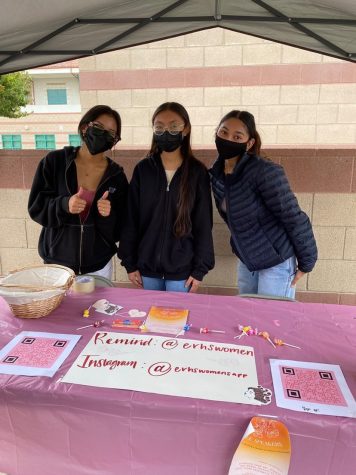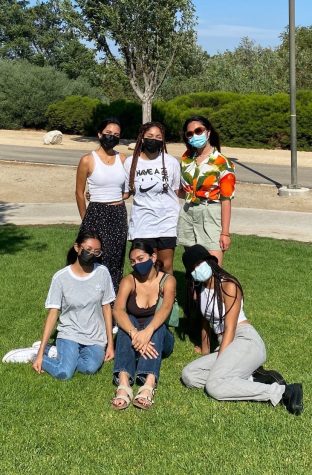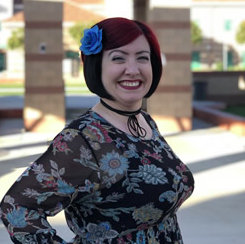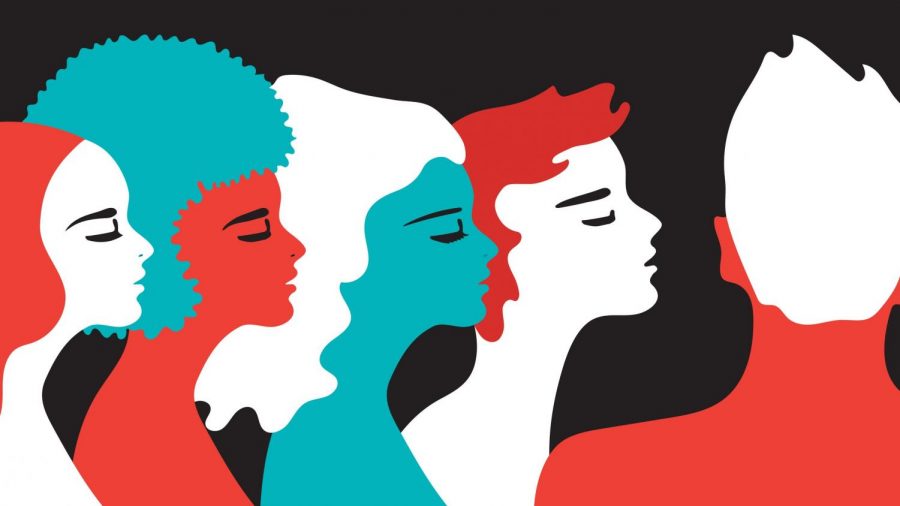Do Schools Take Sexual Assault Seriously?
October 5, 2021
Everywhere in schools, new announcements have been given from administration that students who participate in the new ‘devious lick’ trend, which encourages students to steal random items from school, will be punished to the fullest extent, from both the school and local law enforcement. This has raised discussion within schools and communities about why the same action has not been taken with issues such as sexual assault, which has been a serious issue in schools around the country for years.

Some student organizations have taken it upon themselves to make sure that students who are survivors of sexual assault and abuse are being heard and supported within their groups and communities, such as the Women’s Empowerment Club here at ERHS. I had the opportunity to interview the President of Women’s Empowerment Club, Jada Reese, about her thoughts on how the issue of sexual assault has been dealt with here at Roosevelt.
When asked if she believed that schools do enough to support the students of sexual assault she replied, “Absolutely not. The experiences that I’ve had with people who are comfortable with telling me what had happened to them – they are afraid of the school when they should be finding support from them.”
I also asked her in which ways schools could help in addressing this issue. Reese replied, “I don’t know if they can implement this because it’s been years of public education ignoring sexual assault victims, but just taking it seriously and not making the victims feel like it’s their fault.”

One way that the Women’s Empowerment Club helps support students who are survivors of sexual assault is through Share Your Story, which is a form that you can safely and anonymously share your story of what had happened, so you can be heard, and also shares other resources [below] for additional support. Jada and all of the officers in Women’s Empowerment Club are here to support you or others who may be survivors of sexual assault, and you can reach out to them through their Instagram handles which are provided on their home page. Since they had introduced Share Your Story, they had found that these survivors had felt much more supported having their stories read, and they were also more comfortable with talking about it since it is anonymous.
While it is amazing that our peers are taking action to support survivors, it can only go so far. For some more information on how schools and administrations react to these cases, I interviewed Mrs. Gonzalez, the intervention counselor here at ERHS.

At school, the counselors focus on supporting survivors throughout their healing process and making sure that they are given all of the resources and guidance that they need in able to recover from their trauma. When asked what other ways she believes our school can help better support the survivors she said:
“Right now in general, we have a shortage of mental health professionals… a lot of my students that are wanting counseling face a lot of barriers to getting them. I would love to see more resources.”
One of the resources that she mentioned was Rape Crisis Center, which has a 24 hour crisis line, and they also help with hospital advocacy, accompaniment to court and law enforcement, counseling, information and referrals.
Mrs. Gonzalez also said that she wished there was more awareness within our communities, and that parents were more open to having discussions about topics such as consent, and supportive communication with their children.
Many students had expressed their distrust for how schools handle and address these issues, and survivors are often afraid to report their abuse because they believe that it wouldn’t help or may make their situation even more difficult. Mrs. Gonzalez replied to this saying:
“That’s absolutely true… I know it’s scary to come forward, but you don’t need to suffer in silence. You don’t need to do this alone. There is help out there. Nobody should be at a school where they do not feel safe.”
With regards to how reports are handled by the school, Mrs. Gonzalez said that the school is limited in the ways they are able to investigate them, and the cases are mainly handled by either a special unit of our local law enforcement or Child Protective Services. Along with this, she emphasized the importance of allowing the survivors to come forward on their own time when they feel ready, because a lot of the process going forward will force them to relive the trauma that they had endured.
It’s no surprise that our justice system is deeply flawed. Especially in these cases, the system is not designed to protect the survivor. And unfortunately, sexual assault is one of the hardest allegations to prove, even more so if it had happened in the past. But even then, one of the most important things you can do is to report what had happened, because then it will be more likely for the perpetrator to be convicted, especially if they have a pattern or history of committing these crimes.
Below are some resources to contact if you or someone you know is a survivor of sexual assault.
Rape Crisis Center: rarcc.org
Rape Crisis Center (24-Hour Crisis Line): (951) 686-7273
CNUSD Intervention Counselors: https://www.cnusd.k12.ca.us/departments/instructional_support/intervention_counselors
Rape, Abuse & Incest National Network (RAINN): rainn.org
National Sexual Assault Hotline 24/7: (800) 656-HOPE (4673)


